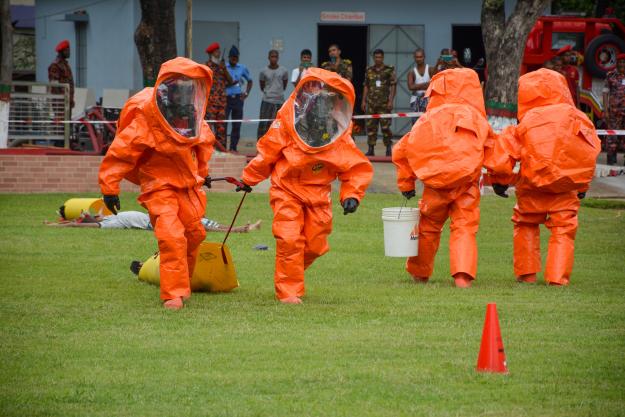
Members of Bangladesh National Authority demonstrate evacuating victims during simulated attack.
THE HAGUE, Netherlands —14 July 2022— Chemical emergencies can arise from a range of situations such as from a leakage, a fire or a chemical attack. To help ensure that first responders have the skills required to respond to a chemical emergency, the Organisation for the Prohibition of Chemical Weapons (OPCW) co-organised regional trainings in Seoul, Republic of Korea, from 13 to 17 June 2022, and in Dhaka, Bangladesh, from 19 to 23 June.
The trainings were conducted in collaboration with the Republic of Korea’s CBRN Defence Command and the Bangladesh National Authority (BNACWC) respectively. Each week-long basic training included core theoretical information as well as practical hands-on exercises.
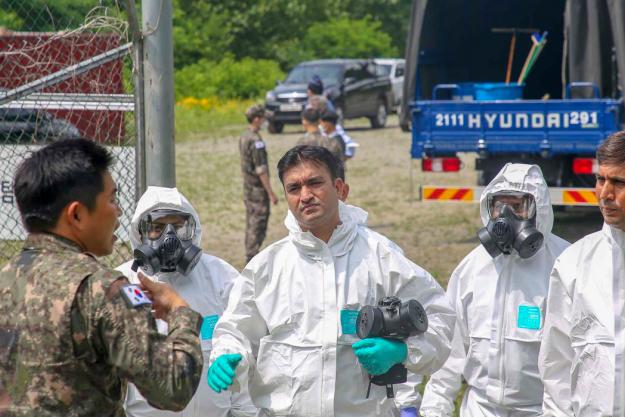
Participants receive instructions before entering chamber with simulated chemical agents.
Participants learned about the Chemical Weapons Convention, principles of emergency management, personal protective equipment, monitoring, detection, decontamination operations, and first aid during a chemical emergency. They also practiced donning and doffing personal protective equipment, using detection devices and implementing decontamination procedures following exposure to a chemical agent.
In Seoul, Brigadier General Dae Wee, Commander of the CBRN Defence Command, emphasised the importance of Article X of the Chemical Weapons Convention (assistance and protection against chemical weapons). He added: “It is in the interest of the Republic of Korea to contribute to the OPCW’s international capacity building programmes by hosting such training courses and sharing our experience on chemical defence.”
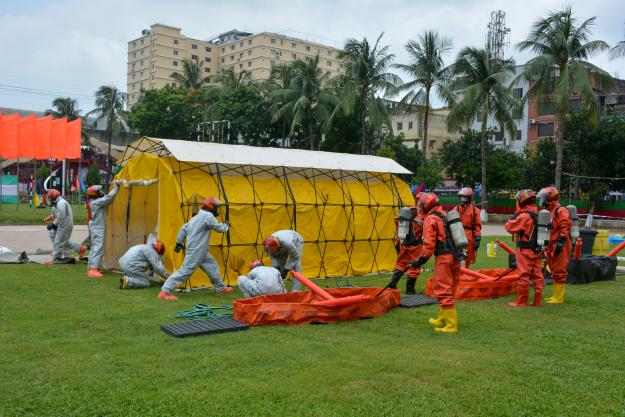
Mobile victim assistance station is assembled during simulated chemical attack.
Addressing the course participants in Dhaka, Dr. Md. Enamur Rahman, State Minister of Ministry of Disaster Management and Relief, expressed: “I am optimistic that this endeavor will make the Fire Service and Civil Defense Department, as well as other related organizations, more efficient in countering any chemical incident or accident. The commitment of OPCW and BNACWC in important to ensuring chemical safety and security for the sake of a peaceful world.”
During the online closing ceremony in Dhaka, Ms Odette Melono, OPCW Deputy Director-General, stressed: “The value of training opportunities of this nature at the regional and international level cannot be underestimated. It broadens the pool of experts in national protective programmes, as well as enhancing national, regional, and international level capacity and responsiveness for minimising potential impacts of chemical incidents”.
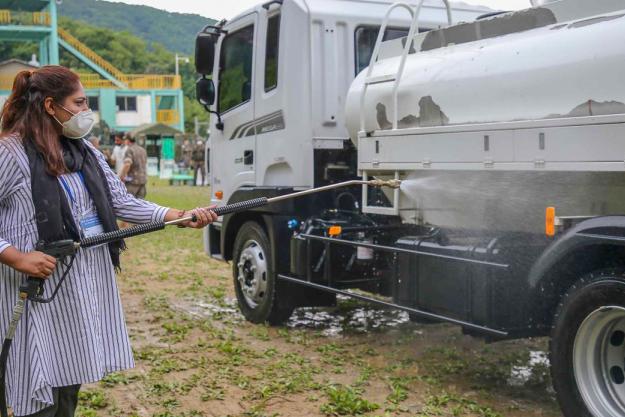
Participant practices vehicle decontamination.
The training in Seoul, Republic of Korea, was attended by 18 participants from 13 OPCW Member States: Cambodia, Fiji, India, Iran, Iraq, Malaysia, Maldives, Myanmar, Pakistan, Qatar, Sri Lanka, State of Palestine, and the United Arab Emirates.
The training in Dhaka, Bangladesh, was attended by 37 trainees from six Member States who are also members of the South Asian Association for Regional Cooperation (SAARC): Bangladesh, India, Maldives, Nepal, Pakistan, and Sri Lanka.
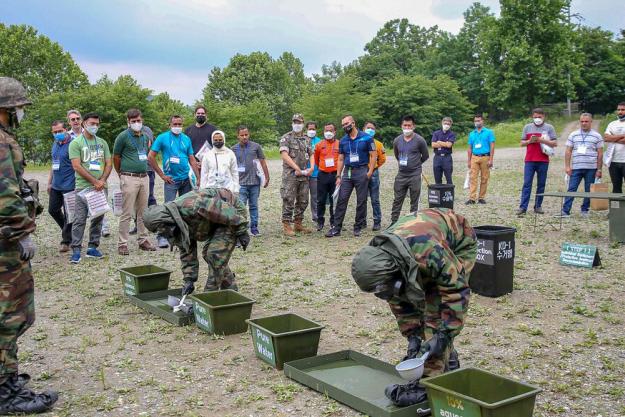
Participants observe decontamination of PPE shoes.
Background
As the implementing body for the Chemical Weapons Convention, the OPCW, with its 193 Member States, oversees the global endeavour to permanently eliminate chemical weapons. Since the Convention’s entry into force in 1997, it is the most successful disarmament treaty eliminating an entire class of weapons of mass destruction.
Over 99% of all declared chemical weapon stockpiles have been destroyed under OPCW verification. For its extensive efforts in eliminating chemical weapons, the OPCW received the 2013 Nobel Peace Prize.
